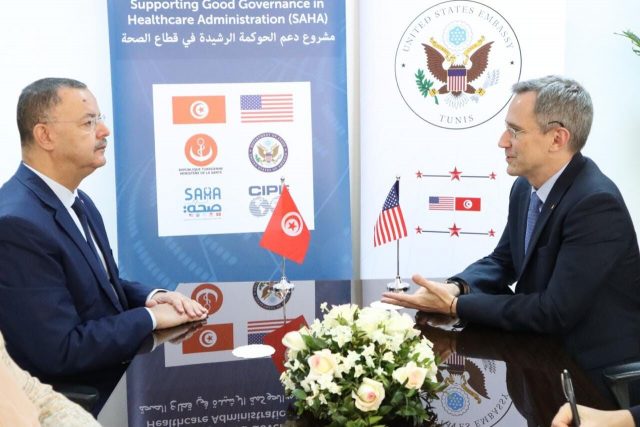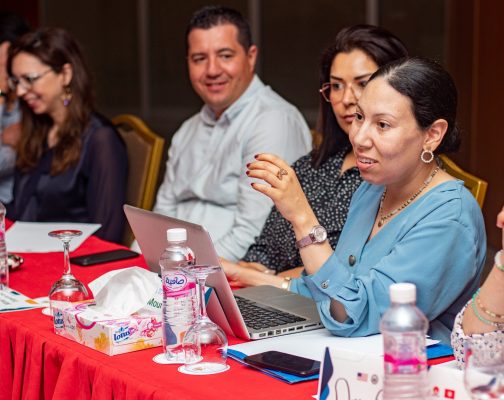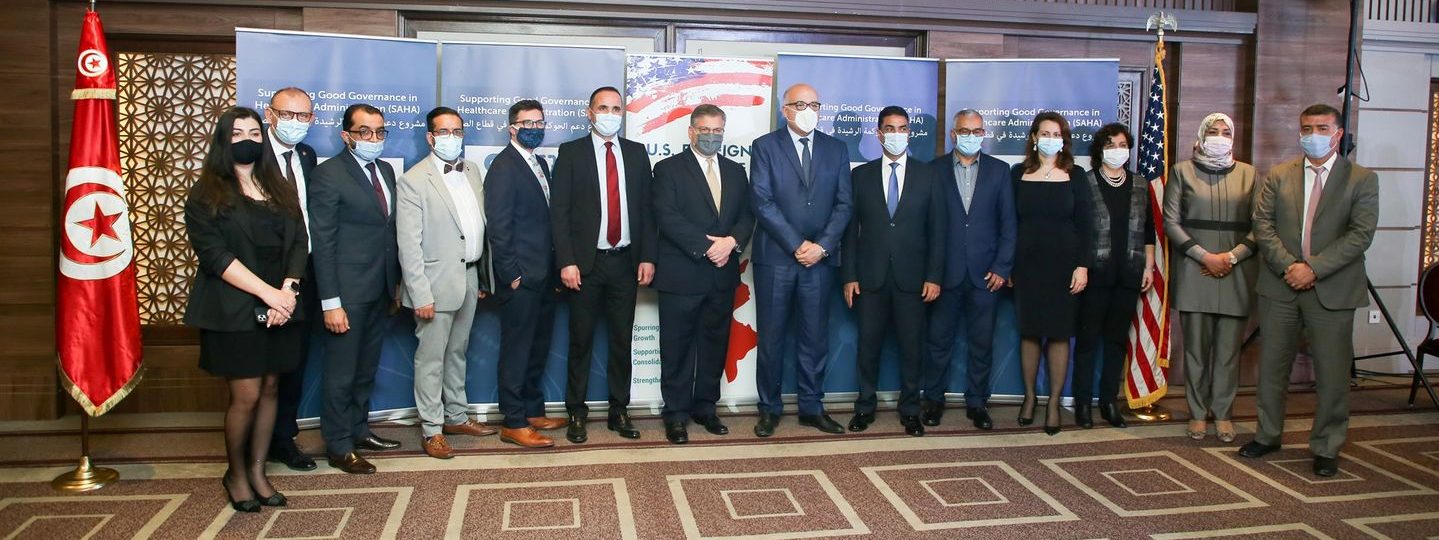Project Overview
CIPE is working with the Ministry of Health (MoH) to strengthen good governance in the Tunisian health sector by improving transparency and accountability. They will partner with local civil society organizations and private sector firms to create an enhanced tracking system for the pharmaceutical supply chain, establish an effective and relevant legal and regulatory framework to govern Tunisia’s healthcare system, and upgrade training structures and materials for MoH staff.
Digitizing Pharmaceutical Regulation for More Transparency and Accountability
Objective: Increase transparency in the pharmaceutical sector by creating a digital system for the Tunisian Directorate of Pharmacies and Medicine (DPM).
Activities:
- Pharmaceutical supply chain assessment: CIPE will hire a Tunisian organization to document Tunisia’s pharmaceutical supply, map tracking systems and procedures already in place, determine needs for medical management, and offer recommendations on improvements to the supply process to increase transparency, good governance, and accountability.
- Develop pharmaceutical tracking system: CIPE will hire a local firm to design an electronic system to monitor the flow of Tunisian medicines throughout their circuit of distribution: from procurement or import to storage facilities, to hospital pharmacies, to patient prescription and dispensation.

Reforms for Healthcare Corruption Mitigation
Objective: Develop a more effective regulatory framework for the MoH to promote good governance and transparency in the health sector.
Activities:
- Stakeholder consultations: Building on an initial expert analysis of existing reform recommendations and their feasibility and a survey of health sector stakeholders, CIPE and its civil society partner BEDER will convene a series of roundtables to agree on the highest priority regulatory reforms.
- Reform advocacy: BEDER will lead a coalition of stakeholders to develop and implement, with CIPE’s guidance, an advocacy action plan. In parallel, BEDER will launch an observatory, the Saha Meter to measure regulatory and legislative reform progress in four areas of the project: governance of public healthcare structures, drug pricing and reimbursement, continuous professional development, and organization of paramedical professions. The SAHA project will launch an anonymous whistleblowing digital platform, Nazaha (“integrity” in Arabic), where users can report cases of corruption and poor governance in the healthcare sector.
Key Desired Outcome: A legal and regulatory framework for Tunisian healthcare that supports greater accountability and clarity in healthcare, mitigates corruption, and encourages strong ethics and good governance. Listen to this CIPE podcast episode to learn more about SAHA’s stakeholder engagement process.

Update Ministry of Health Training System and Develop eLearning Platform
Objective: Upgrade national network of ministry of health training structures and learning materials.
Activities:
- Update learning materials: The project will take a participatory multi-stakeholder approach to identifying gaps in the current MoH training materials, particularly as they relate to governance and supply chain integrity. CIPE will then work with a local firm to translate decisions about curriculum updates into specific content improvements to the existing MoH curriculum.
- E-Learning and Professional Exchange Platform: The project has taken steps to democratize training by overseeing the development of an e-learning and professional exchange platform. The “SAHA Academy” platform, launched in November 2024, empowers healthcare professionals to stay at the forefront of medical advancements while addressing long-standing challenges in training accessibility and governance in Tunisia.
- Establish MoH Center of Training Excellence: CIPE will work with the MoH Director of Training to institute a permanent MoH Center of Training Excellence, which will serve as the coordination mechanism between Regional Training Centers and the central MoH, supporting exchange on curriculum improvement and the integration of in-person and virtual training approaches.
- Overhaul certification system: CIPE will work with the MoH to update medical certification in Tunisia. Following an analysis of Tunisia’s current certification requirements and a complementary survey on perception of certification gaps and needs, CIPE will devise and implement a roadmap for improvement of the certification system.
- Building capacity of the MoH’s 17 Regional Training Centers enabling them to organize distance learning and e-learning activities for all healthcare professionals in all regions of the country.
Key Desired Outcome: A legal and regulatory framework for Tunisian healthcare that supports greater accountability and clarity in healthcare, mitigates corruption, and encourages strong ethics and good governance.



Follow the SAHA Project:
